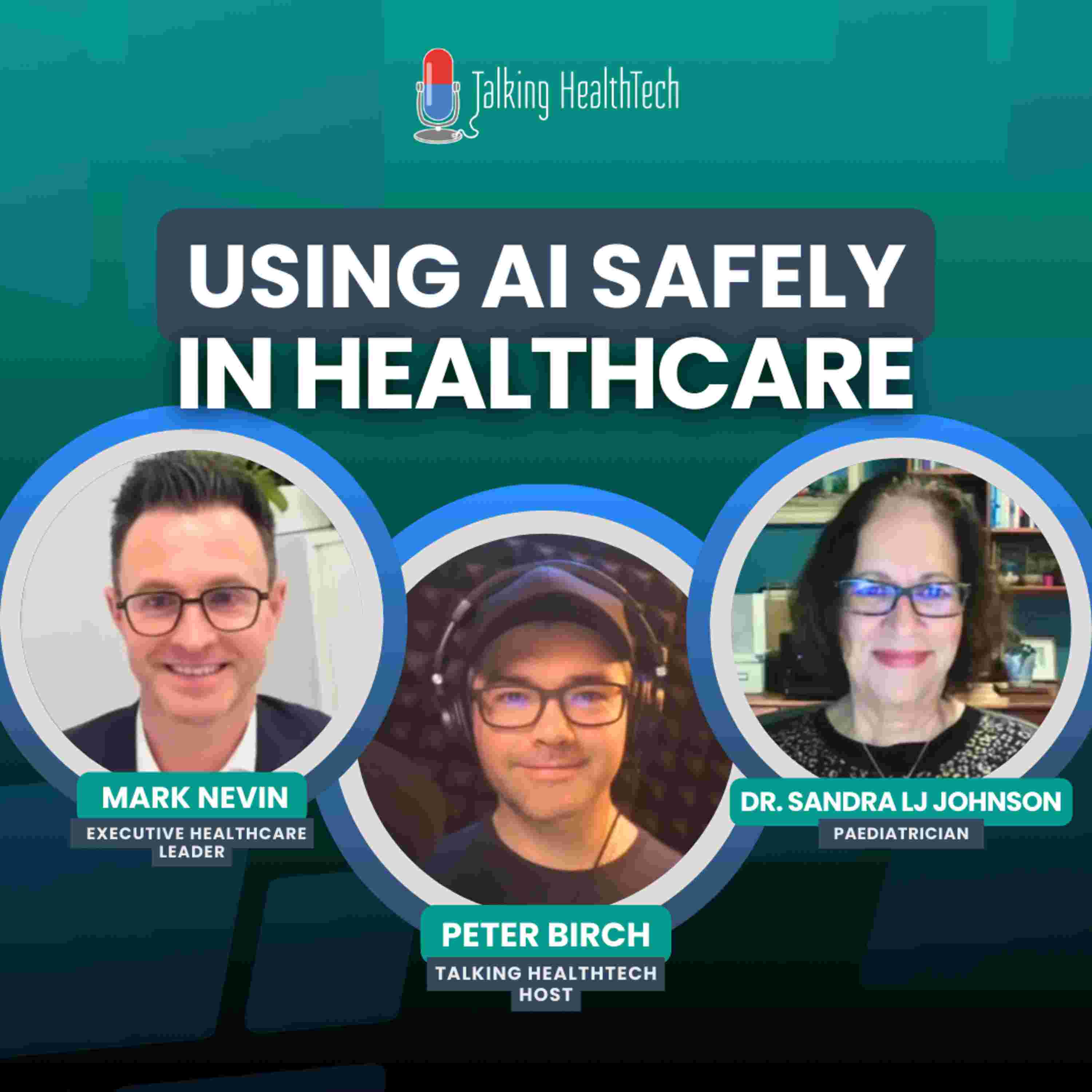

In this episode of Talking HealthTech, Peter Birch speaks with Mark Nevin, an executive leader and policy strategist in healthcare, and Dr. Sandra LJ Johnson, a paediatrician and expert in medical law, about the duties and responsibilities of the medical workforce in overseeing artificial intelligence (AI) in health services.
The discussion explores the evolving regulatory landscape, medical duty of care, risk management, and the need for collaboration between clinicians, technologists, and regulators as AI becomes increasingly integrated into healthcare delivery.
Key Takeaways
🤖 Regulation of AI in healthcare should be risk-based, leveraging existing frameworks while addressing the unique challenges posed by dynamic and learning systems.
⚙️ The duty of care for clinicians extends to understanding the tools and technologies they use, including the basics of how AI systems are trained and their limitations.
🏥 Adoption of AI in clinical settings requires a holistic approach with multiple levels of guardrails—regulatory, specialist, clinician-patient, and consumer feedback—to ensure safety and accountability.
👩🏫 Ongoing education and competency development are essential for clinicians, as medical colleges and educational bodies are now incorporating AI and digital health into their curricula.
🤝 Collaboration across disciplines—between clinicians, engineers, software developers, regulators, and consumers—is key to safe and effective AI adoption in healthcare.
✒️ The complexity of liability in AI-driven care highlights the importance of clear governance and delineation of responsibilities among stakeholders before issues arise.
🌏 Australia is keeping pace with global advancements in AI regulation and implementation, drawing on strong collaboration between its scientific, medical, and regulatory communities.
Check out the episode and full show notes on the Talking HealthTech website.
Loving the show? Leave us a review, and share it with someone who might get some value from it. Keen to take your healthtech to the next level? Become a THT+ Member for access to our online community forum, meet ups, special offers and more exclusive content. For more information visit talkinghealthtech.com/thtplus